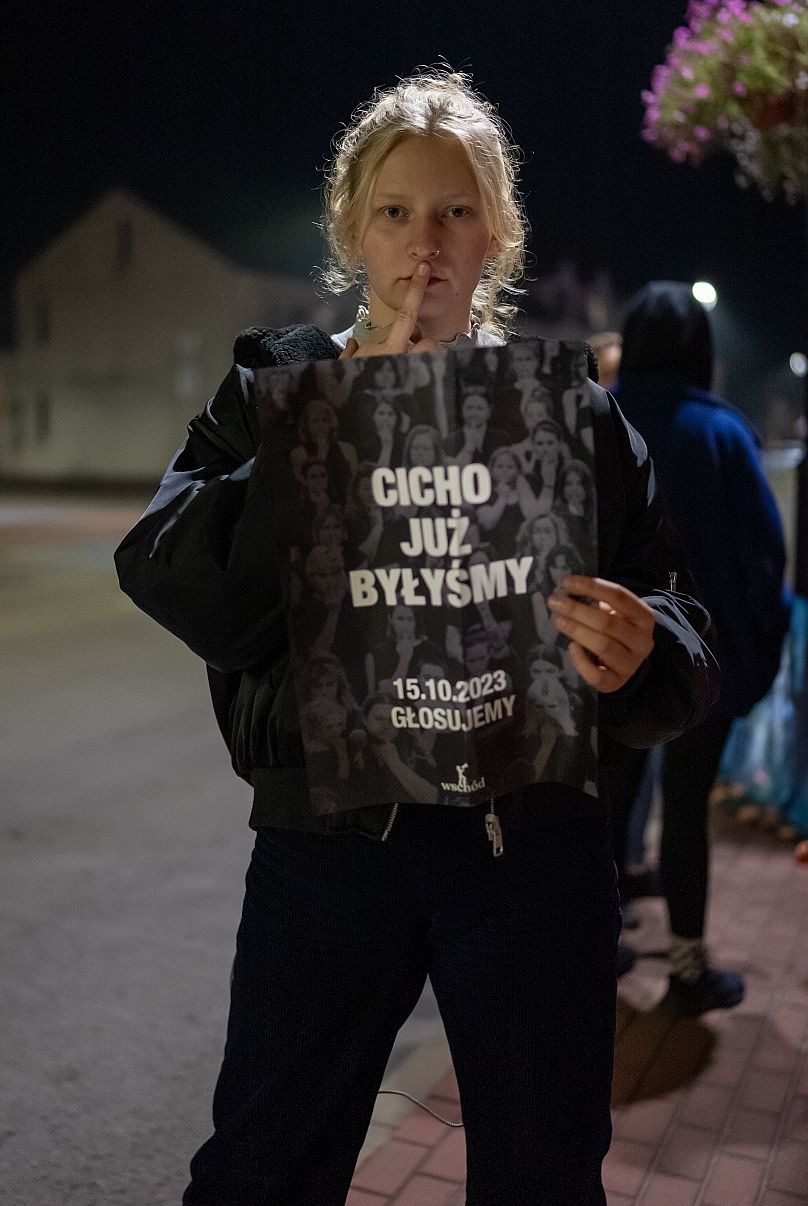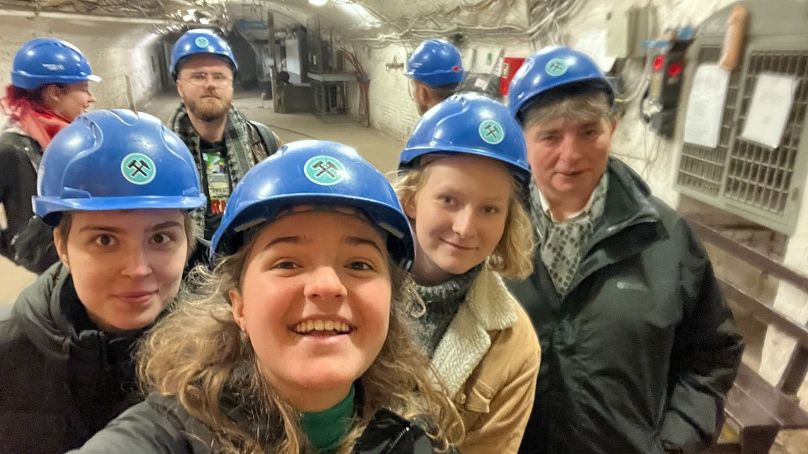On International Day of Climate Action, we look at how young activists played a major role in ousting Poland’s ‘anti-climate’ party.
Poland's election results are being celebrated as a win for both democracy and climate action.
 ADVERTISEMENT
ADVERTISEMENT
 ADVERTISEMENT
ADVERTISEMENT
Last week, opposition parties gained a majority over the right-wing Law and Justice party (Prawo i Sprawiedliwość, or PiS). While PiS secured the most votes for a single party at 35 per cent, it wasn’t enough to maintain their eight-year grip on power.
The opposition - made up of former European Council president Donald Tusk’s Civic Coalition, centre-right Third Way and leftist Lewica - is now on track to form a new government by the end of December.
Their victory promises an accelerated rollout of renewables, improved human rights and an ambitious stance on EU climate policies. Coal makes up 80 per cent of Poland’s energy mix, so it’s hoped that this political shift will lead to it being phased out sooner.
Climate activists have played a major role in the recent election win, as I found from speaking to Dominika Lasota and Wiktoria Jędroszkowiak from the campaign group Wschód (which translates to East or Sunrise).
“For the last eight years, our climate policies were effectively frozen,” says Wiktoria. “Even before the Paris Agreement, climate wasn’t a big topic in Poland.”
Being a climate campaigner in Poland has not been an easy task. “For years, we’ve been writing petitions and organising protests. But realistically, we knew nothing meaningful would be done on a political level,” Wiktoria says. “We knew our chances were very low - but we were committed to this fight no matter the circumstances. And now, everything is different.”
"The only concrete climate promise we've had from the government was that we will keep using coal up until 2049 - so all of our policies so far have been completely detached from reality," says Dominika.
But with the change in government, campaigners are now expecting a positive shift.
"I do understand why people are scared of transition, given how badly the fall of communism was handled on a political level, and also our continued reliance on coal. We have a lot of work to do," she adds.
What is Poland’s track record on climate?
Poland’s current government slowed down climate action through an antagonistic stance towards EU-level policies, campaigners say.
“Law and Justice, in a way, equated climate policy with the European Union's intervention in Poland,” Dominika argues. “They used anti-European sentiments to build up their political power. Being against climate action was just another tool to achieve that."
Law and Justice has been described as a brake on the European Union’s climate ambition. It has opposed several measures, and this year threatened to take the bloc to court over its plans to phase out polluting vehicles. EU climate policies have also been the target of misinformation campaigns, coordinated by Polish ministers and state-owned companies.
"This attitude resulted in the EU blocking Poland from receiving pandemic recovery funds," Dominika says. With the opposition being pro-climate and pro-EU, she is expecting rapid progress soon - with the help of campaign pressure, of course.
Climate campaigners contributed to record voter turnout
Dominika and Wiktoria, along with other activists from Wschód, campaigned for months to mobilise voters ahead of the elections. This came with a shift in focus: "We quickly recognised that conventional tactics wouldn't work - that we wouldn’t reach the hearts of the majority of the people in Poland by speaking about climate and energy alone."
Wschód recognised the need to target a young demographic, especially women who felt disillusioned with politics after the 2020 abortion ban. Wiktoria points to a poll from March showing that 50 per cent of women between 18 and 39 hadn’t intended to vote, even if they supported the opposition.
Their campaign took them to music festivals and involved an effective social media strategy featuring celebrities and influencers. One vote mobilisation video, portraying women from a range of backgrounds under the campaign slogan of “Cicho Już Byłyśmy” (“We have been quiet already”) reached as many as 20 million people - the equivalent of over half of Poland’s population.
In the end, women and young people were well represented among a record high turnout of over 74 per cent of Poland’s population. In an emotional video shared on Instagram, campaigners reacted to the live results, with Dominika writing “We have our Poland. We have our future. We fought for this freedom, this breath of relief, our democracy.”
“Now those people see that their voices really matter,” Wiktoria, 22, tells Euronews Green. “Young people decided these elections. Now they’ll have to listen to us - or we will vote them out as we have before.”
Poland urged to prioritise a just transition from coal
The incoming government faces the colossal task of addressing Poland's reliance on coal.
Coal had been touted as “Polish black gold” by Law and Justice, but Dominika stresses the dissonance between this rhetoric and reality.
"Over ten mines are being closed down because coal has become so economically inefficient. No one is taking responsibility for this process, and people are left behind to fend for themselves with no political support," she says.
There's an urgent need for dialogue with the coal mining community, Dominika explains. "The overall sense among the coal miners and trade unions is that they feel betrayed by previous governments.
“There are different groups among coal miners, with different attitudes to climate action,” she adds. “But a lot of them want a properly planned, just transition."
What challenges does Poland’s new government face?
The opposition is expected to need about two months to form a new government - coinciding with COP28, the global climate conference.
Despite the celebratory mood among climate activists, the road ahead won’t be without challenges. There will be contentious decisions regarding coal, and the role of gas and nuclear.
Dominika is concerned about how the various parts of the coalition will prioritise these issues. “Different parties will have different priorities - from investment, privatisation, expanding renewables, or providing workers’ guarantees for miners,” she says.
“There are also potential complications caused by state-owned energy companies, which have previously been filled with politicians from the Law and Justice party and their friends. It will be interesting to see how the new government handles this.”
“We need to meet people where they’re at”
Dominika shares that their campaign strategies drew inspiration from international groups and movements, such as the ones that campaigned against Bolsanaro in Brazil.
"We learned a lot from our Brazilian colleagues and their campaign to vote out Bolsonaro. They had to accept that they needed to focus on voting him out first, and come back to climate later. It was crucial to meet people where they’re at. Now we’re thinking about how we can share our strategies, and help people win in more places.”
Poland’s new government will no doubt have impacts for the whole of the EU and beyond, with campaigners, politicians and diplomats expressing hope for the country’s new role in the global climate conversation.
“Poland was a country which often blocked climate policies,” Wiktoria says. “Now we will be an important player in the conversation. If it can happen in Poland, it can happen anywhere.”













